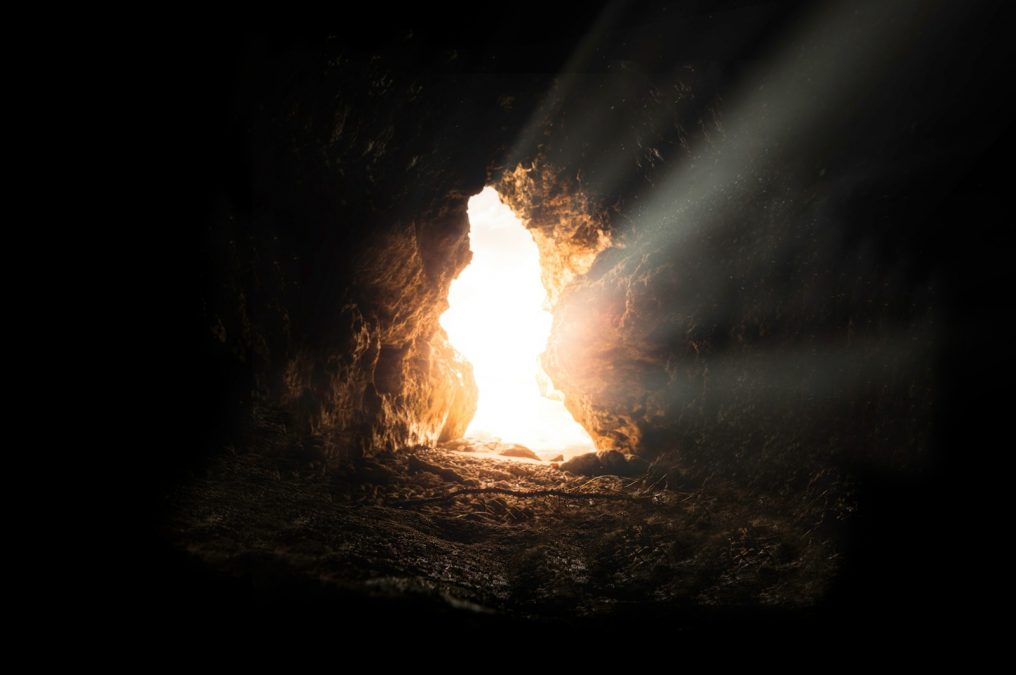
Martine Oborne: The Not Equal Yet Conference and what Jesus might think about ‘benevolent sexism’ today
April 3, 2024
Marika Rose: Remember Amalek
April 12, 2024I discovered Nick Cave through what I imagine is a roundabout route: theology. Or perhaps not so roundabout, given his recent high profile interview with one Justin Welby and immense back-catalogue of songs filled with his search for the almighty amidst intense periods of personal suffering.
Few personalities in music have suffered as Cave has: he has lost a wife, buried two sons, and battled heroin addiction for twenty years. His plaintiff tones, which have prevailed even through his meandering genre identities, have led to a reluctance to reach for his music unless I am in a very specific mood. It does not tend to be a good mood.
However, the release of Nick Cave and the Bad Seeds’ latest single, “Wild God” has met with widespread adulation and I’ve been pressing repeat time and time again. I don’t think there are many artworks, never mind modern rock songs, that pull the veil aside on the God of the Old Testament quite so joyously, revealing the powerful, vengeant and righteous figure who as Cave’s song opens, now moulders in an old people’s home, ‘entombed’ in his memories. The song invokes this God to action as a Gospel choir crashes into the frequent refrain to ‘bring your spirit down’.
Cave has always been fascinated by the Bible, yet very sceptical of organised religion as he said to the Archbishop of Canterbury himself in ‘The Archbishop Interviews’ for BBC Radio 4. He has spoken openly about his belief in God, who he perceives as a non-interventionist, untouchable deity, and wrote in his 2022 book, Faith, Hope and Carnage that “All my songs are written from a place of spiritual yearning, because that is the place that I permanently inhabit. To me, personally, this place feels charged, creative, and full of potential.”
Strangely enough (and here’s a segue!), I found that place of spiritual yearning a few weekends ago in a very strange conference centre near Stoke-on-Trent as Modern Church’s Council and Trustees met for our annual residential. In his interview with Welby, Cave describes God as a ‘direction’ but says he is still sceptical of the journey. I think this is where I am – my heart open but my head forever seeking to comprehend the incomprehensible, slowly being dragged into God’s huge gravity whilst my historian’s brain finds flaw in scripture and the two-dimensional narratives expounded from the pulpit. I’ve found few answers in church but many, many people asking the right questions in Modern Church.
In the recent council meeting, we pondered what might make a good tagline for our website. Of the many options mooted, “a home for heretics” met with a rumble of approval from those assembled. Here, in our 126 year old theological union, we feel safe to voice the questions that might result in rather awkward silences over post-worship coffee in our local parish church.
And it is perhaps because of the journey Modern Church has taken me on, and the safe space that it has provided for my heretical questions, that I find myself reading Francesca Stavrakopoulou’s God: An Anatomy. I’ve finished the chapter about God’s feet and how he became uprooted from the Temple in Jerusalem to become the disembodied, all-pervasive God we know today, and I’m now reading about his phallus. It’s a brilliant historical exploration of God’s transformation from giant human in the Old Testament to giant cloud in our modern consciousness.
It is from the pages of this fleshy, corporeal history that Cave’s “Wild God” flies “like a prehistoric bird”. Because, like it or not, the idea of a God who physically walks alongside his prophets in conversation is not how many of us perceive God working in the world today. I can’t get my head around that. God is a sort of cloud or something. Right? I can maybe go as far as a burning bush but that’s my limit. Yet Cave’s God bursts from his retirement village, destroying it in the process, and goes in search of his lost love and his lost people; talks to them and answers their questions in typically cryptic fashion; and flies through nations to bring about good old fashioned Old Testament judgement with wild abandon.
Unlike almost everything else in Cave’s back catalogue, “Wild God” is joyous, uplifting and has been the perfect musical accompaniment to Stavrakopoulou’s examination of God’s physicality. A few years ago, my brittle faith would have crumbled as I came to understand just how much we humans have disembodied God. Today, I revel in the uncertainty of it all, knowing that the journey itself, travelled with many questioning souls like Cave, and my fellow Modern Church heretics, unlocks a “place that feels charged, creative and full of potential.”
As I leave the employ of Modern Church to start paying back as a paid-up member, I would like to thank you all for your patience as you have transformed a sceptical church historian into the most amateurish toddler of a theologian, but one who dances, sings and rejoices in the unknowns, the unknowables and the heretical questions.





1 Comment
Thank you. I enjoyed reading your thoughts on our VERY wild God.
I too discovered Nick Cave accidentally – I was googling on prayer and “interventionist God” resulted in that beautiful Cave song ‘Into My Arms’ (if anyone has not heard it, do look it up). I have recently booked to go to one of his ‘Wild God’ concerts later this year. I’m hoping it will be another inspirational leg of that journey into those unknowns, unknowables and hereticals.
And for anyone who doesn’t know about them I would thoroughly recommend Nick Cave’s online Red Hand Files – a regular but brief “agony uncle” response to some very serious issues which people write to him about.